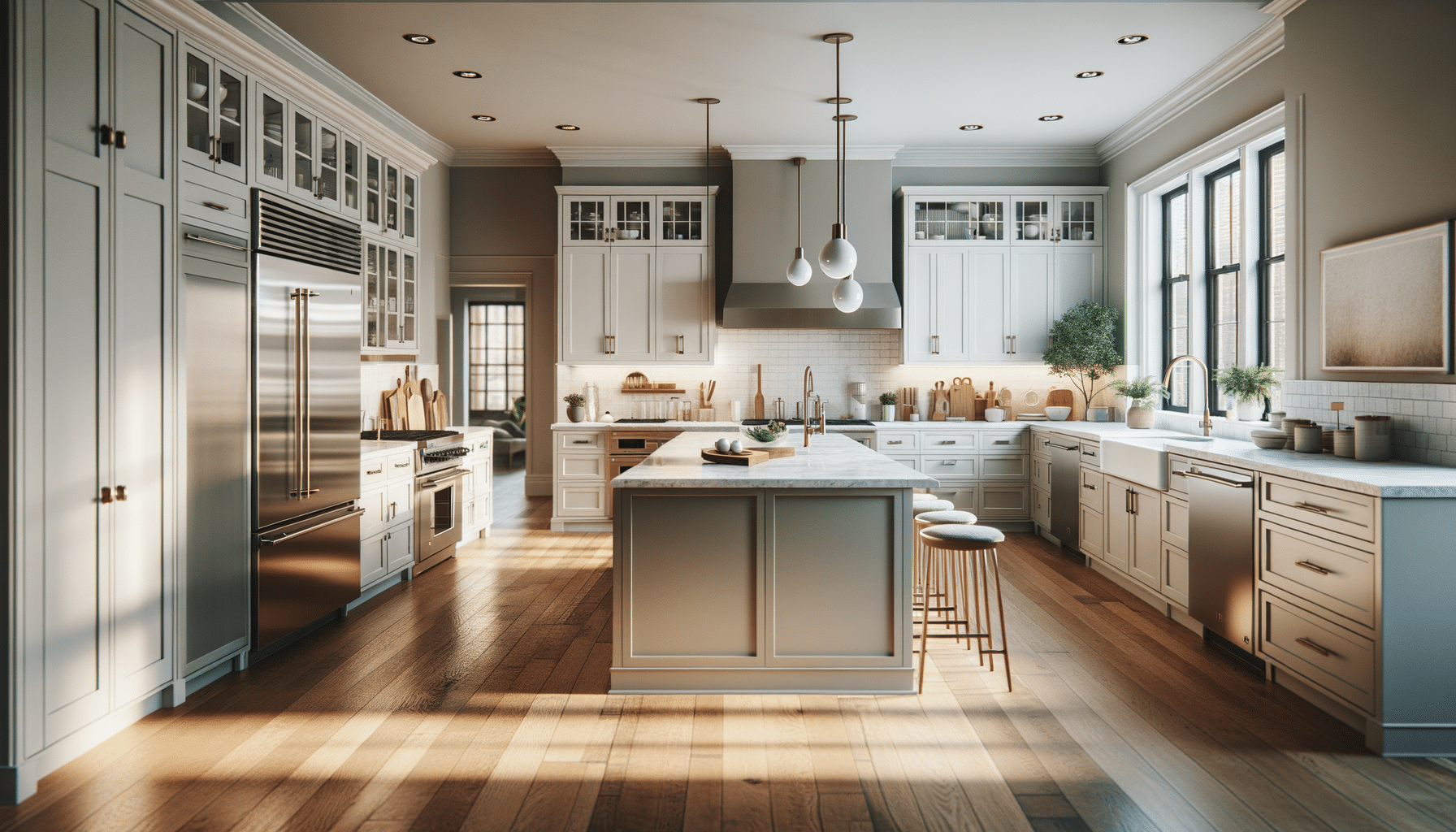
Transforming Your Space: The Art and Science of Kitchen Remodeling
Introduction to Kitchen Remodeling
Kitchen remodeling is a rewarding endeavor that can drastically enhance the functionality and aesthetics of your home. As the heart of the household, the kitchen is not only a place for preparing meals but also a space for family gatherings and social interactions. A thoughtfully designed kitchen can improve everyday life, increase the value of your property, and offer a fresh, inspiring environment. This article delves into various aspects of kitchen remodeling, providing insights and practical advice for a successful transformation.
Planning Your Kitchen Remodel
Effective planning is the cornerstone of any successful kitchen remodel. This phase involves setting clear objectives, assessing the current layout, and establishing a realistic budget. Begin by identifying what aspects of your kitchen need improvement—be it space optimization, modern appliances, or updated aesthetics. Next, consider your lifestyle and how the kitchen design can cater to it. For instance, if you enjoy hosting dinner parties, an open-plan layout with an island could be beneficial.
Budgeting is crucial and should encompass all potential expenses, including materials, labor, and unforeseen costs. It’s advisable to allocate an additional 10-20% of your budget as a contingency fund. Consulting with a professional designer or contractor can provide valuable insights and help streamline the planning process.
- Define your goals and priorities.
- Evaluate your current kitchen layout.
- Establish a comprehensive budget.
- Consider consulting professionals for expert advice.
Design and Style Considerations
Designing your kitchen involves selecting a style that resonates with your personal taste while ensuring practicality. Whether you prefer a modern, minimalist look or a cozy, traditional style, the key is to create a cohesive design that complements the rest of your home. Consider the color palette, materials, and finishes that will be used throughout the space.
Lighting is another critical aspect of kitchen design. Adequate lighting enhances functionality and ambiance. Incorporating a mix of task lighting, ambient lighting, and accent lighting can create a well-lit, inviting space. Additionally, think about the ergonomics of your kitchen. Ensure that the workspace is efficient, with the sink, stove, and refrigerator forming a convenient triangle for easy movement.
- Choose a style that reflects your personality.
- Select a harmonious color scheme.
- Incorporate versatile lighting solutions.
- Focus on ergonomic design for efficiency.
Material Selection and Sustainability
The materials you choose for your kitchen remodel significantly impact the overall look, durability, and sustainability of the space. Opt for high-quality materials that offer longevity and easy maintenance. Popular choices include granite or quartz countertops, hardwood or tile flooring, and stainless steel appliances.
Sustainability is an increasingly important consideration in modern kitchen design. Look for eco-friendly materials such as bamboo flooring, recycled glass countertops, and energy-efficient appliances. These options not only reduce your environmental footprint but can also lead to long-term cost savings through reduced energy consumption.
- Prioritize quality and durability in material selection.
- Explore sustainable and eco-friendly options.
- Consider the long-term maintenance of materials.
Executing the Remodel
Once the planning and design phases are complete, it’s time to execute the remodel. This stage involves coordinating with contractors, managing the timeline, and ensuring that the project stays within budget. Clear communication with your contractor is essential to address any challenges that may arise during construction.
It’s also important to prepare for the disruption that a kitchen remodel can cause in your daily routine. Setting up a temporary kitchen area can help minimize inconvenience. Throughout the process, regularly review the progress and make adjustments as needed to ensure the final result aligns with your vision.
- Maintain open communication with your contractor.
- Prepare for temporary disruptions in your routine.
- Regularly monitor progress and budget adherence.
Conclusion: Achieving Your Dream Kitchen
Kitchen remodeling is a complex yet rewarding project that requires careful planning, design, and execution. By considering factors such as layout, style, materials, and sustainability, you can create a kitchen that not only meets your functional needs but also enhances the aesthetic appeal of your home. Whether you do it yourself or hire professionals, a successful kitchen remodel can lead to a more enjoyable and efficient cooking and living environment, ultimately adding value to your property.